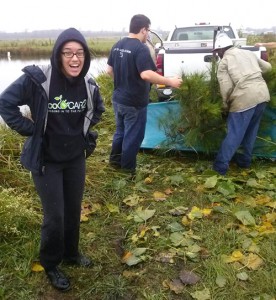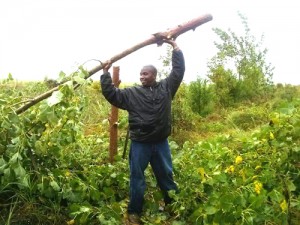
Lauryn, an Environmental Technology and Management student, attended GREENBUILD 2013 to learn more about sustainability.
Lauryn Coombs, junior in Environmental Technology and Management, grew in her involvement and enthusiasm for sustainability after attending GREENBUILD NATION 2013 in Philadelphia, PA. Through a scholarship from the United States Green Building Council, she was able to thrive in this environment as she was surrounded by a variety of attendees ranging in backgrounds from academia to the business world. These individuals gathered for one common purpose…to learn and share knowledge about sustainability.
The conference offered everyone opportunities to trade business cards, learn about USGBC’s efforts and progress worldwide and connect with a variety of professionals at all stages. Hilary Clinton’s keynote on the importance and positive impact of Green Building on our communities and a Bon Jovi concert were just a few highlights from the event.
This opportunity confirmed Lauryn’s unique interest in combining her degree in Environmental Technology and Management with her minor in Landscape Architecture to pursue a career in sustainable design. Her advisor, Linda Taylor, has offered her the ability to carefully plan her coursework to align with her interests and career goals.
In addition, Lauryn is the USGBC Co-President and is helping to lead the NC State Student Chapter of USGBC, so feel free to contact her if interested in becoming more involved. The group plans to have a meeting the first Friday of each month beginning in January, and you can also follow their events on Facebook (NCSU USGBC Student Group).







